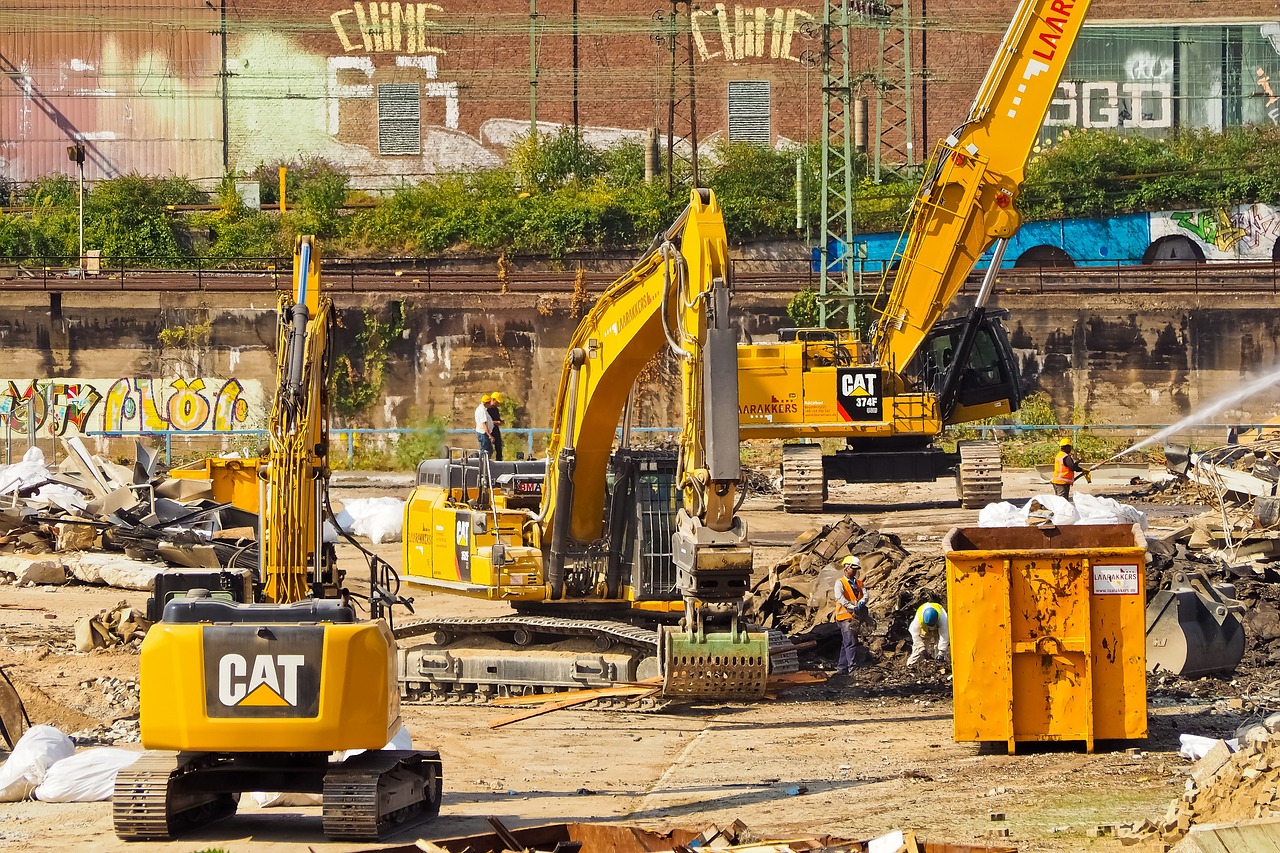Construction projects, no matter where they are located, present a unique set of challenges that must be navigated to ensure success. However, in New England, these challenges are often amplified by the region’s distinctive characteristics, including its unpredictable weather, diverse landscapes, and stringent regulatory environment. For those looking to undertake construction projects in this part of the country, understanding and preparing for these challenges is crucial.
In this blog post, we’ll explore the unique challenges of managing construction projects in New England, provide insights on effective planning and execution, discuss common pitfalls and how to avoid them, and showcase how Northern Point Consulting’s expertise can help deliver successful projects on time and within budget.
The Unique Challenges of New England Construction
New England is a region with a rich history, diverse geography, and a climate that can range from harsh winters to humid summers. These factors contribute to a construction environment that requires careful planning and execution. Below are some of the key challenges specific to construction projects in New England:
1. Unpredictable Weather
One of the most significant challenges in New England construction is the region’s unpredictable weather. Winter months bring heavy snowfall, ice storms, and freezing temperatures, which can halt construction activities, damage materials, and create hazardous working conditions. In contrast, the summer can be humid, leading to issues like mold growth and material degradation if not properly managed.
The weather can change rapidly, making it difficult to maintain a consistent construction schedule. For example, a project planned for early spring may face delays due to an unexpected late-season snowstorm, or a summer project could be interrupted by a sudden heatwave or thunderstorm. These unpredictable conditions necessitate a flexible and adaptive project management approach.
2. Stringent Regulatory Requirements
New England is known for its stringent regulatory environment, especially concerning construction. Local, state, and federal regulations can be complex and vary significantly from one location to another within the region. These regulations often include strict zoning laws, environmental protection mandates, and historic preservation requirements, particularly in areas with older buildings and landmarks.
Navigating these regulations requires a deep understanding of the local legal landscape. Failure to comply with these requirements can result in costly fines, project delays, or even legal action, making it essential to have a knowledgeable team that can ensure all aspects of the project meet the necessary standards.
3. Diverse Geography
The geography of New England is as varied as its weather, with landscapes ranging from rocky coastlines and mountainous regions to dense forests and urban centers. This diversity means that construction projects can face a wide array of site-specific challenges, such as difficult terrain, poor soil conditions, and varying accessibility.
For example, constructing in a coastal area might require specialized foundations to protect against flooding and erosion, while a project in a mountainous region might need to address issues related to steep slopes and unstable ground. Each type of landscape presents its own set of challenges that must be carefully considered during the planning and execution phases.
Effective Planning and Execution in New England
Given these challenges, effective planning and execution are critical to the success of construction projects in New England. Here are some strategies that can help ensure your project runs smoothly:
1. Leverage Local Expertise
Local expertise is invaluable when navigating the complexities of New England construction. Professionals who are familiar with the region’s climate, regulations, and geography can provide insights that are critical to effective project management.
For instance, local contractors and consultants are likely to have established relationships with regulatory bodies and understand the nuances of local zoning laws and environmental regulations. They can help you anticipate potential issues and develop strategies to address them before they become significant problems.
Additionally, local experts are better equipped to manage the logistical challenges that come with working in New England’s diverse landscapes. They can recommend the best materials for specific conditions, suggest optimal construction techniques, and identify reliable local suppliers.
2. Develop a Detailed Project Plan
A well-thought-out project plan is essential for managing construction in New England. This plan should include detailed timelines, budgets, and contingency strategies to account for potential delays or issues related to weather, supply chain disruptions, or regulatory approvals.
Given the unpredictability of New England’s weather, it’s important to build flexibility into your project schedule. Consider creating a buffer period in your timeline to accommodate potential weather-related delays, and plan for alternative work that can be completed during inclement weather.
Your project plan should also include a thorough risk assessment. Identify the risks specific to your project—whether they’re related to weather, regulations, or site conditions—and develop mitigation strategies for each. For example, if your project is scheduled during the winter, have a plan in place for snow removal, heating for concrete pours, and protecting materials from freezing temperatures.
3. Prioritize Communication and Collaboration
Effective communication is vital in managing the complexities of a construction project, especially in a region like New England where unexpected challenges are common. Ensure that all stakeholders—contractors, architects, regulatory bodies, and clients—are regularly updated on the project’s progress and any potential issues that arise.
Collaboration is equally important. Involve key team members in decision-making processes and encourage open dialogue to address concerns as they come up. This collaborative approach can help identify solutions more quickly and keep the project moving forward.
Common Pitfalls and How to Avoid Them
Even with the best planning, construction projects in New England can face a variety of challenges. Here are some common pitfalls and strategies to avoid them:
1. Weather-Related Delays
As mentioned earlier, New England’s weather is unpredictable and can cause significant delays. To avoid weather-related pitfalls, monitor weather forecasts closely and adjust your project schedule as needed. Having a flexible project plan with built-in contingencies for weather disruptions can help keep your project on track.
Additionally, consider using weather-resistant materials and construction techniques that can withstand the region’s harsh conditions. For example, using concrete additives that accelerate curing time in cold weather or opting for materials that are less likely to be damaged by moisture can make a big difference.
2. Regulatory Compliance Issues
Regulatory compliance is a major concern in New England construction. To avoid issues, work with local experts who understand the regulatory landscape and can ensure that your project meets all necessary requirements.
Conduct thorough research and due diligence before starting the project, and don’t underestimate the importance of obtaining the proper permits and approvals. Regular communication with regulatory agencies can also help prevent misunderstandings and ensure that your project stays compliant.
3. Supply Chain Disruptions
Supply chain disruptions can be particularly problematic in New England, especially during the winter when transportation can be affected by snow and ice. To mitigate this risk, establish strong relationships with reliable suppliers and maintain a backup plan for sourcing materials.
It’s also wise to order materials well in advance, especially those that are essential to the project’s timeline. By anticipating potential supply chain issues and preparing accordingly, you can avoid delays and keep your project on schedule.
Northern Point Consulting’s Expertise
At Northern Point Consulting, we understand the unique challenges of managing construction projects in New England. Our team has extensive experience navigating the region’s unpredictable weather, complex regulations, and diverse geography. We specialize in providing tailored solutions that address the specific needs of each project, ensuring that our clients achieve their goals on time and within budget.
We take a proactive approach to project management, working closely with our clients and stakeholders to anticipate potential challenges and develop effective strategies to overcome them. Whether it’s developing a detailed project plan, securing the necessary permits, or managing construction during the harsh New England winter, Northern Point Consulting has the expertise to deliver successful outcomes.
Conclusion
Construction in New England is a complex endeavor, but with the right planning, expertise, and management strategies, it’s possible to navigate these challenges successfully. By leveraging local knowledge, developing detailed plans, and avoiding common pitfalls, you can ensure that your construction project is completed on time, within budget, and to the highest standards.
Northern Point Consulting is here to help you every step of the way, providing the guidance and support you need to achieve your construction goals in New England’s challenging environment. Contact us today to learn more about how we can help you navigate your next construction project with confidence.





0 Comments